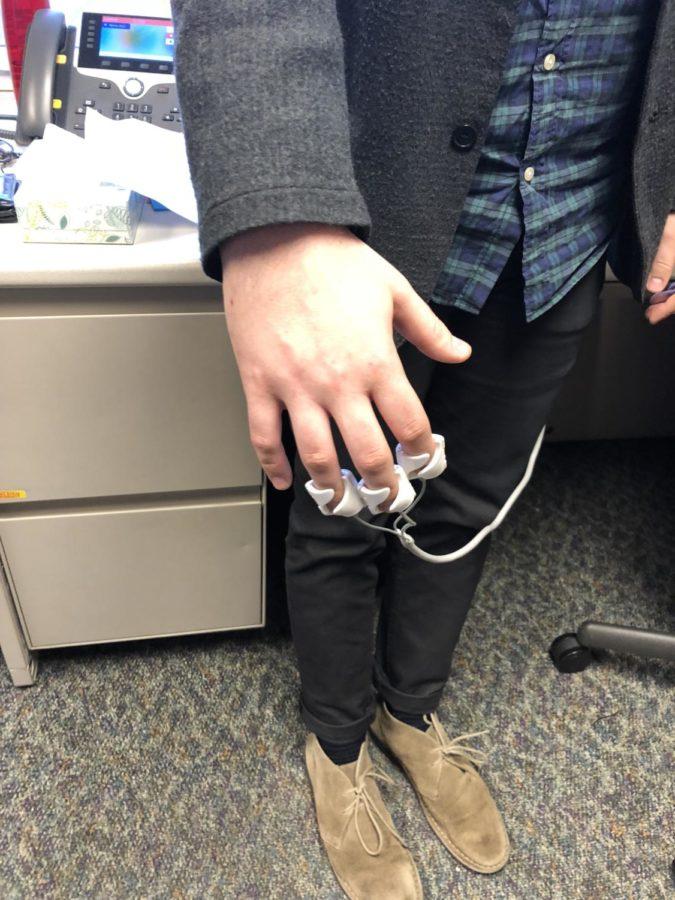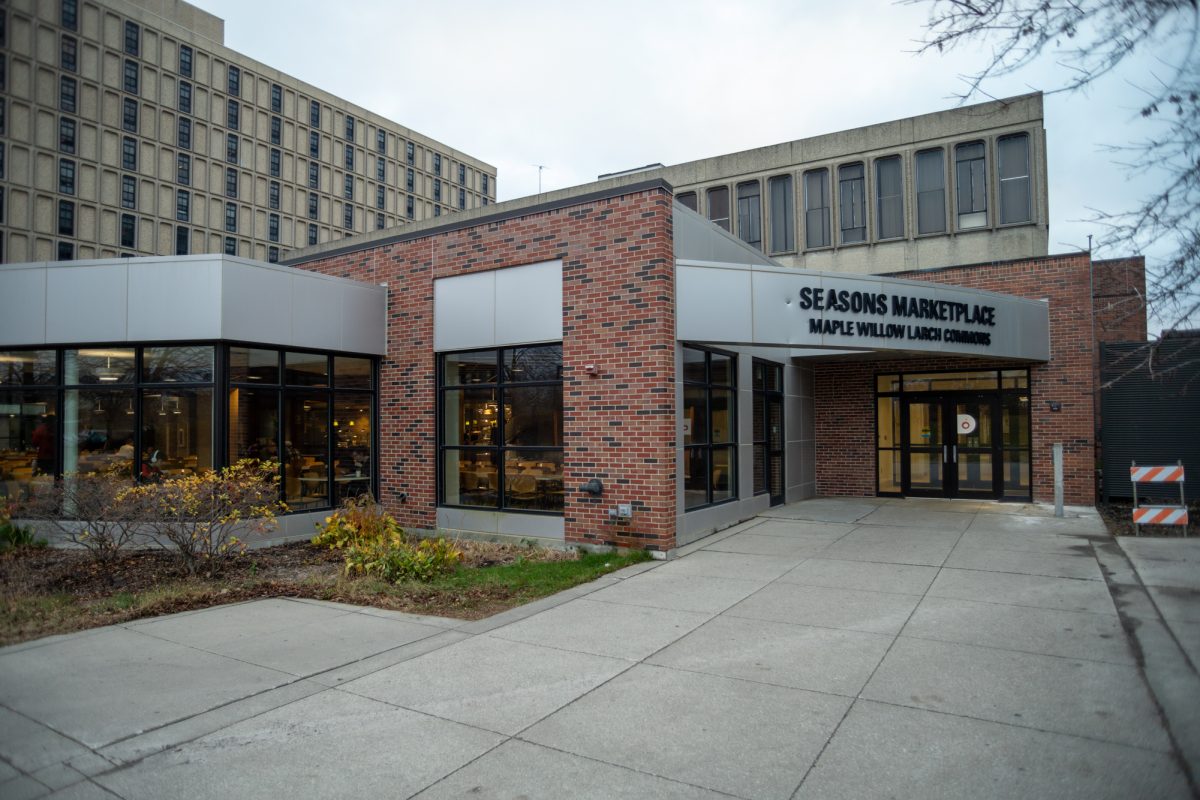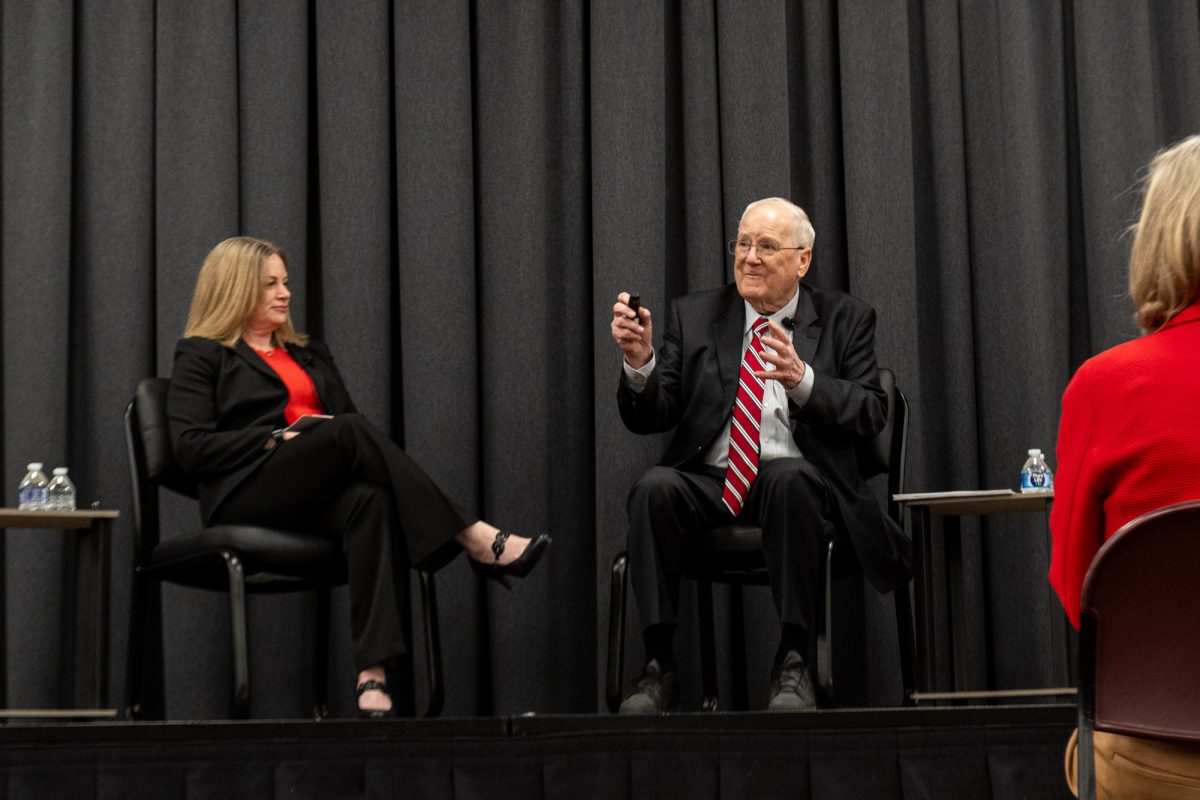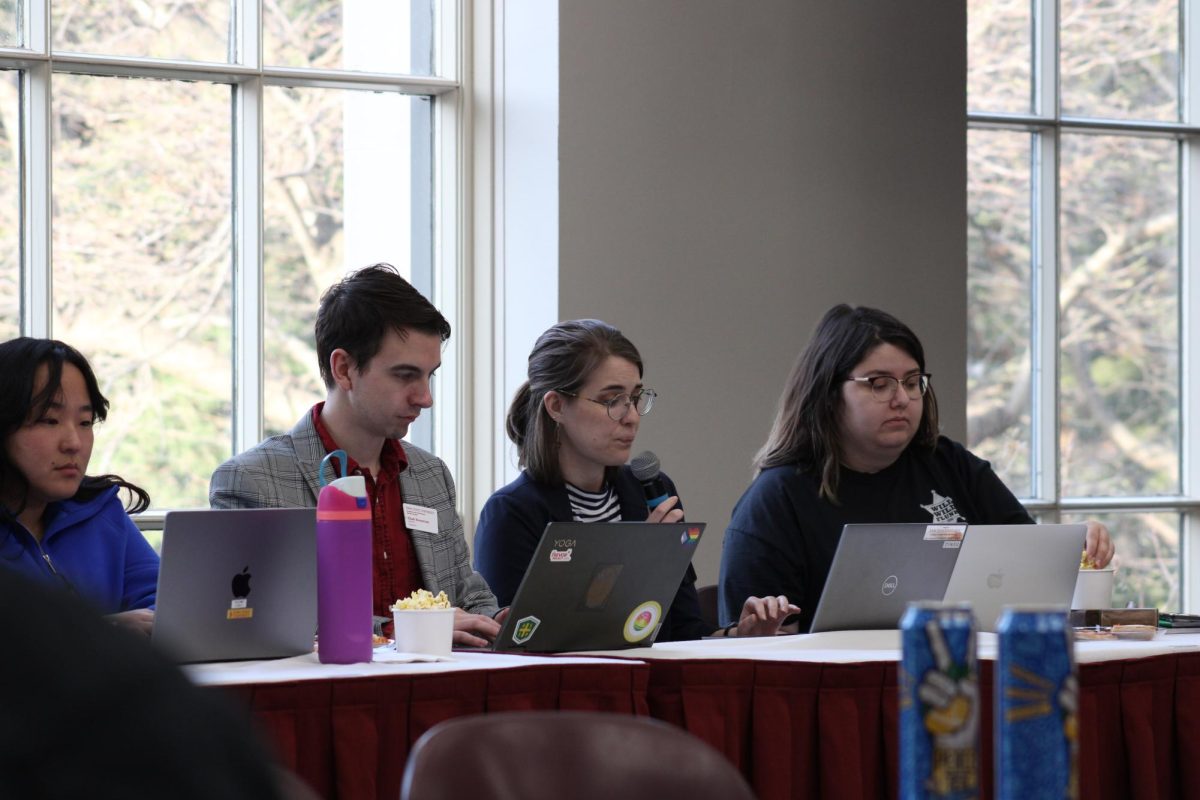Spotlighting Student Counseling Services: Biofeedback
November 8, 2018
In the fall of 2009, Student Counseling Services (SCS) started a pilot program, Biofeedback, as an alternative approach for students to address both psychological and physiological concerns.
The success of the program encouraged SCS to grow in size and approach. They are currently in their ninth year of providing Biofeedback and related mind-body services, such as light therapy and mindfulness meditation classes, according to SCS staff.
Biofeedback uses controlled breathing techniques to help students manage problems such as stress, anxiety and depression.
They do so by using a series of apps that guide students through games to teach them coping skills such as how to quiet your mind or how to observe your thoughts. At the same time, students are doing meditations as well as getting physical feedback that is visualized on the screen.
This allows students to see in real time how their level of stress or anxiety is impacting their breathing, said Biofeedback graduate assistant Andrew Seidman, a master of science.
Seidman is a fifth-year graduate student in the counseling psychology doctorate program, and has been a part of the Biofeedback program for the last two years.
“Breathing is a mechanism through which you do the game,” Seidman said.
Students can get started with the Biofeedback program through a referral from a SCS counselor or they can email the Biofeedback staff directly, as well as walk in and ask about the program specifically at the SCS reception desk.
A students’ journey through the program starts with a Biofeedback orientation. This is done with a small group of about six students that will come in and meet with a member of the Biofeedback staff.
“Students [can] come in and learn Biofeedback, what it’s all about, how to use the equipment, how to use it for whatever they are dealing with whether that be anxiety or depression. So we just introduce them to the program to get them set up to go do it on their own on a self-guided basis,” said Kaitlyn Burke M.S. a Biofeedback graduate assistant.
Burke is a fifth-year graduate student also in the counseling psychology doctorate program, as well as a clinical graduate assistant.
Once they have attended orientation students can come in and use the Biofeedback program on their own whenever they choose.
Students that have used the program have reported many benefits such as: increased ability to sooth the self, more feelings of relaxation, increased self-awareness, increased ability to remain present in the moment and a greater sense of self confidence and control.
“I think it is really important [remaining present] because that anxiety can take you out of the moment and people miss out on relationships you know, just literally moments of life,” Seidman said.
Each of the different Biofeedback programs can be tailored to help students with whatever may be going on in their life.
“There are different topics, so one could be [focused on] calming and the other could be trying to find a balance in your life,” said Wen-Hsin Chang Ph.D., the interim director of career exploration services and the staff psychologist, Biofeedback coordinator.
Each semester, between 200 and 300 students take advantage of what Biofeedback has to offer. Between 150 and 200 of those students have continued to utilize the services regularly. As of this semester, 137 students have used Biofeedback and continue to come back, Burke said.
“I think the record right now is someone has come back nine times so far after their orientation,” Burke said. “So people do come back and keep coming back.”
When encountering stress or anxiety the body is sent into a fight or flight response causing the heart rate to increase and breathing to become short and uneven. This is a natural biological response to a stressor, but what is done next is a choice, this is where Biofeedback comes into play.
“So the initial stimulus, or whatever the anxiety is, that’s a problem, but also if we don’t feel like we can trigger that response then we are vulnerable to becoming irritable or isolated or other consequences,” Seidman said. “The first step is anxiety, but if you can trigger that response [learned through biofeedback] hopefully that stops it, or at least makes it more manageable or gives you more self confidence in your ability to manage it.”
Students can find the Biofeedback program along with other services in the Student Services building on the third floor where the student counseling services reception desk is located.
“Even for situational things that we all encounter, like we all encounter presentations, exams, stressful situations, so even if you don’t have an anxiety disorder this is a skill that will be helpful to you throughout your life,” Burke said.
Services offered by SCS such as Biofeedback are very unique, it is not a service that is commonly found outside of universities, and it would not be free as it is to Iowa State students.
“You would probably need to buy the program yourself, as far as I know there are not people doing this [Biofeedback] for free,” Chang said.
The SCS staff encourages students to take advantage of services such as the Biofeedback program while it is free and available to them.
“I can’t think of places to go to do Biofeedback out in the real world, I’m not aware of that,” Burke said.
Students are especially susceptible to stress and anxiety while attending college where new experiences and challenges can occur every day.
“Especially because students are in such an important developmental phase where they’re transitioning from high school, and typically being with parents, to now independence, that is such a stressful transition and so we have these services to help ease it and to really help you make the right decisions and orient yourself in a path that feels right,” said Seidman.
Stress and anxiety are barriers that come up every day for almost everyone, they are practically inevitable. Biofeedback serves as a form of coping with these everyday stressors through the simple act of breathing.
“You can’t go through your life without encountering stressful situations, it’s just not going to happen,” Burke said. “So it’s a real skill that you can take with you and use in a lot of different situations.”






